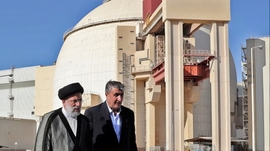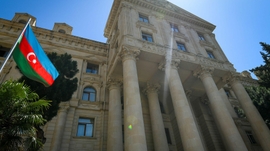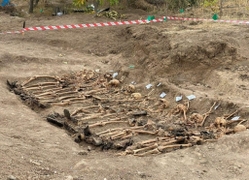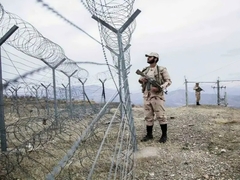Iran aims to transform security borders with Pakistan “into safe and economic borders”, according to President Ebrahim Raisi.
“Iran's strategy of transforming security borders into safe and economic borders, developing border markets and cooperation in the energy sector and through the realization of this strategy and emphasized on the greater activity of both countries to accelerate the realization of this matter,” Raisi said at a meeting with Pakistan's Chief of Army Staff General Asim Munir on July 16, Iranian president’s website reported.
General Munir is on an official visit to Tehran.
The president stressed the need for increased efforts from both countries to expedite the realization of this objective, and emphasized that prioritizing the strengthening of relations with neighbouring countries, particularly Muslim nations, is a key aspect of Iran's foreign policy.
"Accelerating the implementation of agreements between the two countries will further promote economic and commercial cooperation between Iran and Pakistan, and as a result, the level of political relations between the two neighbors will improve," Raisi said.
In turn, General Munir hailed Iran's foreign policy as a valuable opportunity for the Islamic world.
He referred to the length of shared border by the two countries and the significant potential for border exchanges, and agreed that the expansion of economic, trade, and border interactions could contribute to the enhancement of security conditions.
He said that good agreements have been made to increase the level of security at the borders, adding that "our efforts are focused on expediting the ongoing actions to establish sustainable security."
Iranian Armed Forces Chief of Staff Major General Mohammad Hossein Baqeri who hosted the Pakistani commander in Tehran on July 15, proposed boosting trade along the border with Pakistan as a way of improving the security of the region.
Major General Baqeri said the "hegemonic" world powers had targeted both countries, making it imperative for Iran and Pakistan to cooperate and strengthen their security.
"Global trends indicate a decline in the power of America and the West. The centre of global power is shifting to Asia and the East. The future world will certainly be different," he added.
The Pakistani commander, who arrived in Iran on a two-day visit on July 15 with a high-ranking military delegation, also met the Commander-in-Chief of Iran's Islamic Revolutionary Guards Corps (IRGC), Major General Hossein Salami, on July 15.
“We are ready to resolve the challenge of insecurity and presence and activities of terrorist elements in the two countries’ border areas, and expand mutual cooperation and resort to the most suitable solutions to the current situation and make progress in other fields of interest to the two states,” General Munir said during the meeting.
Meanwhile, Major General Salami said: “We regard Pakistan’s security as our own security, and with an expansion of interactions, cooperation and joint and unified actions, we will put an end to the existence of terrorist grouplets and establish stable security in the border areas of the two countries”.
Last month, Iran’s Deputy Defense Minister Brigadier-General Seyyed Mahdi Farahi and Pakistan Defense Secretary Hamood uz Zaman Khan discussed cooperation between the two countries to contain "terror" groups.
In a meeting in Tehran on June 14, the Iranian deputy minister said that "cooperation between Iran and Pakistan would seriously constrain the field of operations for takfiri and terrorist groups."
Farahi noted that improving defence cooperation with Islamabad could strengthen trust and act as a spur to combat "terrorist" organizations like the Islamic State (IS/ISIS) and "separatist groups".
The two countries share a 904-kilometer-long border. Iran's south-eastern province of Sistan-Baluchestan, which has borders with Pakistan and Afghanistan, is home to some Sunni extremist groups that are opposed to the Islamic Republic as a Shia theocracy. The province is also an entry point for smuggled drugs and arms.


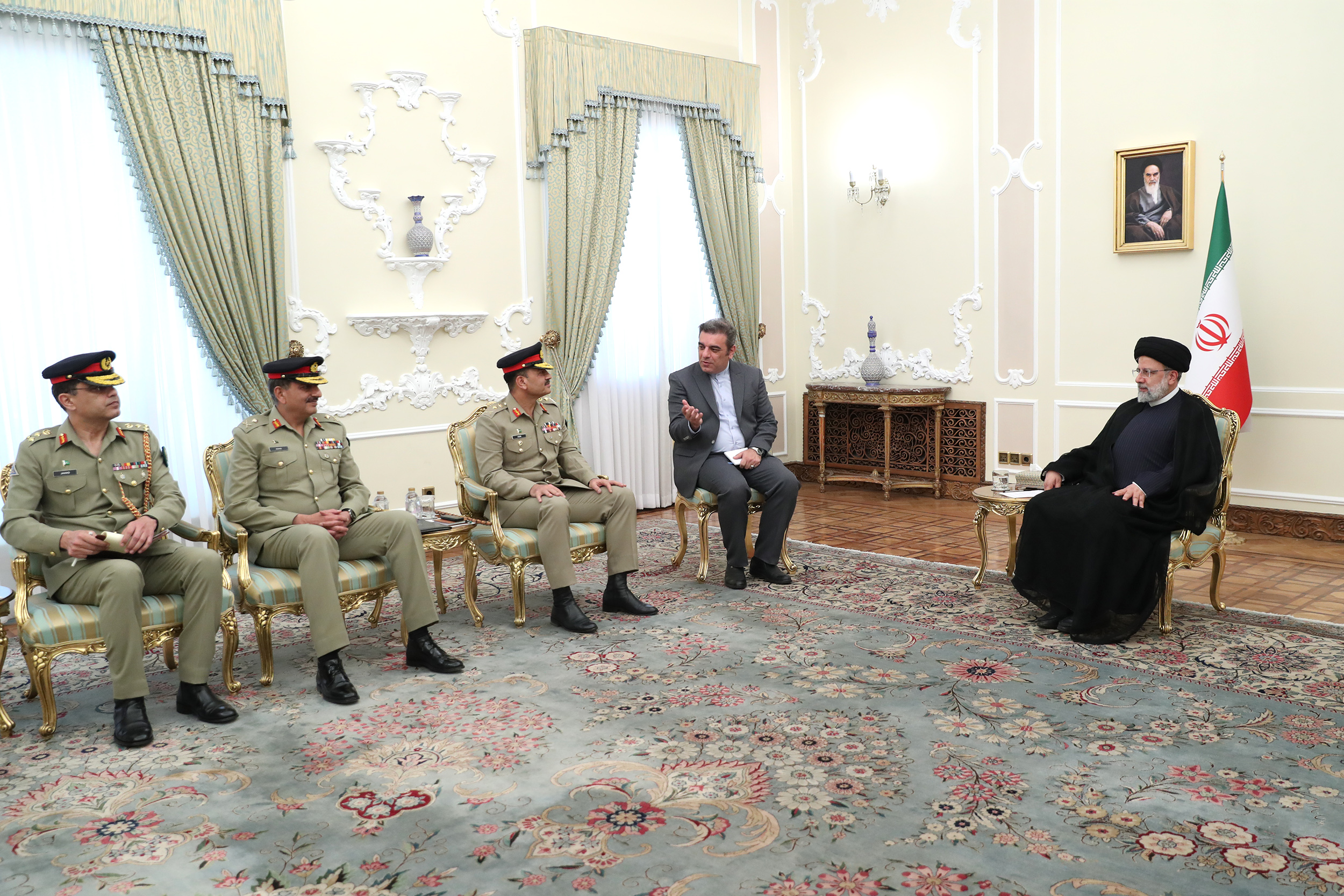




 Azerbaijan, Uzbekistan, and Kazakhstan are planning to merge their energy systems following a historic memorandum of understanding (MoU) signed by ...
Azerbaijan, Uzbekistan, and Kazakhstan are planning to merge their energy systems following a historic memorandum of understanding (MoU) signed by ...
 President Ilham Aliyev praised Azerbaijan’s cultural diversity as a key factor in fostering peace, stability, and unity within the country, where a...
President Ilham Aliyev praised Azerbaijan’s cultural diversity as a key factor in fostering peace, stability, and unity within the country, where a...
 Ulviyya Fataliyeva, a female Azerbaijani chess grandmaster, was crowned this week at the European Women’s Chess Championship (EWCC) in Rhodes, Gree...
Ulviyya Fataliyeva, a female Azerbaijani chess grandmaster, was crowned this week at the European Women’s Chess Championship (EWCC) in Rhodes, Gree...
 The Iranian and Cuban transport ministers have discussed expanding maritime and air transportation cooperation.
The Iranian and Cuban transport ministers have discussed expanding maritime and air transportation cooperation.
